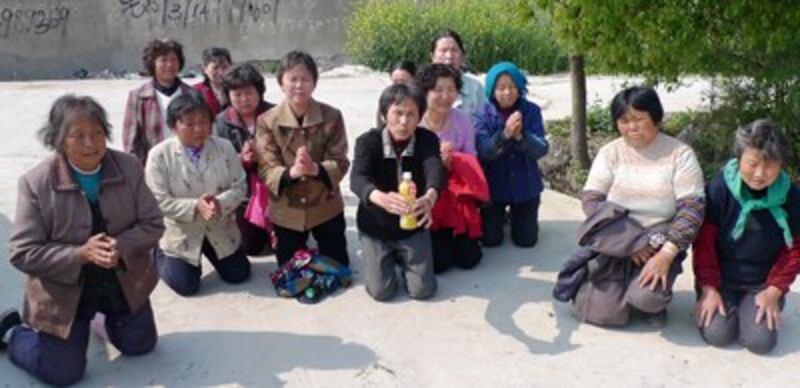A top Chinese environmental group has accused Chinese companies believed to be in Apple Inc.'s supply chain of polluting the environment.
Chinese nongovernment group the Institute of Public and Environmental Affairs (IPE) said it and other environmental groups had identified 27 companies, believed to be Apple suppliers, that are endangering public health through high levels of pollution.
"The large volume of discharge in Apple's supply chain greatly endangers the public's health and safety," said the report, published Wednesday on the website of the Beijing-based IPE.
According to the group, which is headed by former investigative journalist Ma Jun, Apple suppliers were found to be releasing toxic gases, polluted waste water, and heavy metal sludge into the environment, sparking allegations of high levels of sickness among some local residents.
"Through the process of our investigations, we discovered several suspected suppliers to Apple that have been the target of numerous complaints from local communities," the report said.
It accused Apple, which has offered to discuss the findings via conference call with the IPE, of pursuing "blood-stained profits."
Ma, who was named by Time magazine in 2006 as one of the world's 100 most influential people, said he had received e-mail confirmation from Apple that "some" of the companies listed in his group's report were its suppliers.
"They didn't get back to us on the issue of pollution, however," Ma said. "They also declined to promise to step up supervision in future."
"As a leading world electronics manufacturer, [Apple] has a responsibility to carry out supervision," he said. "They cannot continue to allow these factories to continue polluting the environment."
"As a leading world electronics manufacturer, [Apple] has a responsibility to carry out supervision," he said. "They cannot continue to allow these factories to continue polluting the environment."<br/>
An employee who answered the phone at the Hong Kong branch of Apple Inc. said the company would only accept e-mail inquiries. But an e-mail sent to the company remained unanswered at the time of publication.
However, Apple spokeswoman Carolyn Wu was quoted by Agence-France Presse as saying that the company was "considering" the latest allegations.
"We require that our suppliers provide safe working conditions, treat workers with dignity and respect, and use environmentally responsible manufacturing processes wherever Apple products are made," Wu was quoted as saying.
She did not say how many of the 2010 audits were conducted in China, however.

Links to illness?
A resident of Tongxin village in the eastern province of Jiangsu surnamed Zhu said more than 100 villagers have been diagnosed with cancer since the Kaida Electronics Factory, a company listed in the IPE report, was built there several years ago.
According to Zhu, the diagnoses had included liver cancer, stomach cancer, and cancer of the nose and the lymphatic glands, and that the youngest of the cancer patients was just 45 years old.
He said villagers had long complained of foul fumes issuing from the factory.
"More than 100 villagers here have got cancer," Zhu said, although neither he nor RFA had any way of confirming a causal link with the Kaida plant. "Around 50 of them have died, so that's more than 50 people."
"The majority of them have liver cancer," said Zhu, adding that local hospitals were "full" of such cases.
"This plant is right next to a kindergarten," he said. "A lot of people have moved away because they can't bear it."
Ma said many of the pollutants in the factories his group had tested were many times over legal limits for harmful chemicals in their wastewater.
"Some of the factories showed levels of [heavy metals] five times in excess of legal limits," he said. "But their [official] waste channels only had clean water, so we don't know where that water was being channeled."
Calls to a large number of the companies named in the report resulted in an employee declining to comment, or saying "I don't know," in response to questions about pollution levels.
An employee who answered the phone at the Kaida Electronics Factory said they were unable to answer questions.
"You will have to ask our Party secretary Mr. Li that question," the employee said. "He is our spokesman, and he's away in Nanjing on business right now."
"We haven't been authorized to speak to you."
Apple in China
China's burgeoning middle class has an apparently insatiable appetite for Apple's iPhone and iPad gadgets, which are seen as proof of a successful, tech-savvy lifestyle.
Apple's four stores in the Chinese cities of Beijing and Shanghai are among its most profitable worldwide, the company has said.
Last year, Taiwan-invested Foxconn, which assembles Apple's iPhone, came in for harsh criticism after a number of Chinese employees, including 10 in Shenzhen, apparently committed suicide by jumping from buildings.
Critics blamed harsh working conditions at the plant for the suicides, as China faced a wave of industrial action at foreign-invested companies over pay and working conditions.
Apple acknowledged problems at the Foxconn plant after a series of suicides there and has said that in 2010, 137 workers at another supplier—Wintek—suffered "adverse health effects" when exposed to a chemical substance called N-hexane, used to clean screens.
Apple later required Wintek to stop using N-hexane, prove it had done so, and fix its ventilation system, and began following factory working practices in its Supplier Responsibility progress reports.
Reported by Fung Yat-yiu for RFA's Cantonese service. Translated and written in English by Luisetta Mudie.
